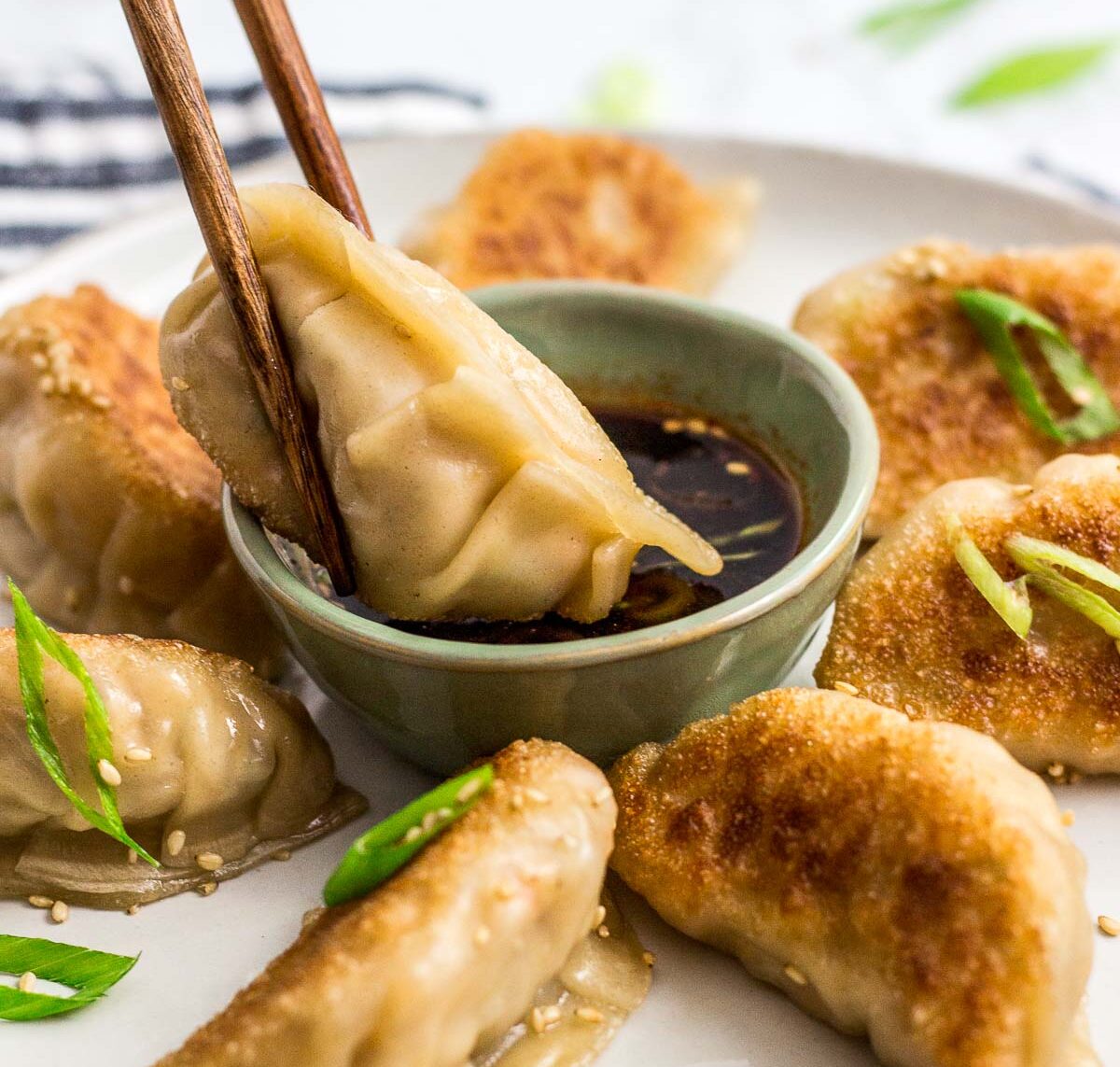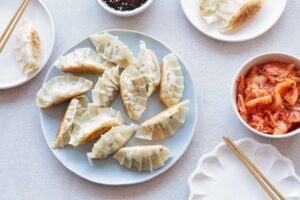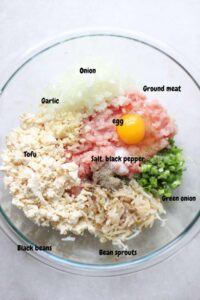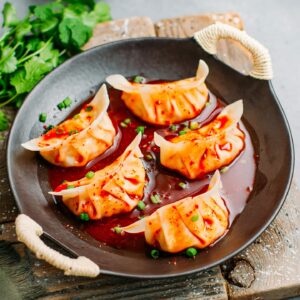Everyone likes mandu, and one of the great things about it is that you can make a lot at once, freeze them, and then use them over time in so many different ways. These days, so many of us are suffering from inflation, and I was thinking what kind of recipe I could share that would help us all keep our families well-fed deliciously. It seems like a good time to remake this video and refresh this recipe. My old mandu recipe was loved by many over the years and I hope this updated recipe and video is also used and enjoyed for many more.
Mandu (만두) are Korean dumplings that are popular as a snack, appetizer, or main dish. These versatile dumplings can be steamed, boiled, pan-fried, or deep-fried, making them adaptable to various tastes and occasions.
Types of Mandu:
- Gunmandu (군만두) – Pan-fried mandu, crispy and golden brown on the outside.
- Jjinmandu (찐만두) – Steamed mandu, soft and fluffy.
- Mulmandu (물만두) – Boiled mandu, often served in soups or broth.
- Kimchimandu (김치만두) – Spicy mandu filled with kimchi and other ingredients.
- Wangmandu (왕만두) – Large mandu filled with a variety of ingredients, often more substantial.
Common Fillings:
- Meat: Pork, beef, or chicken mixed with seasonings.
- Vegetables: Napa cabbage, garlic chives, onions, and mung bean sprouts.
- Tofu: Crumbled tofu adds a soft texture.
- Glass noodles (dangmyeon): Chewy noodles often included for texture.
- Seasonings: Garlic, ginger, sesame oil, soy sauce, and pepper.
How to Make Mandu:
- Prepare the Filling: Combine finely chopped ingredients like meat, vegetables, and seasonings in a bowl.
- Wrap the Mandu:
- Place a spoonful of filling in the center of a dumpling wrapper.
- Moisten the edges with water and fold the wrapper in half, sealing the edges. You can pleat the edges for decoration.
- Cook:
- Steam: Arrange mandu in a steamer and cook for 8–10 minutes.
- Fry: Heat oil in a pan and fry mandu until golden brown.
- Boil: Drop mandu into boiling water or broth and cook for 5–7 minutes.
- Serve: Enjoy mandu with a dipping sauce made of soy sauce, vinegar, sesame oil, and optional chili flakes.
Tips:
- Freezing Mandu: Lay uncooked mandu on a tray to freeze, then store them in a bag for later use.
- Serving Suggestions: Mandu pairs well with kimchi, rice, or as part of a soup like mandu-guk (dumpling soup) for a comforting meal.
Would you like a recipe or more details about a specific type of mandu?



